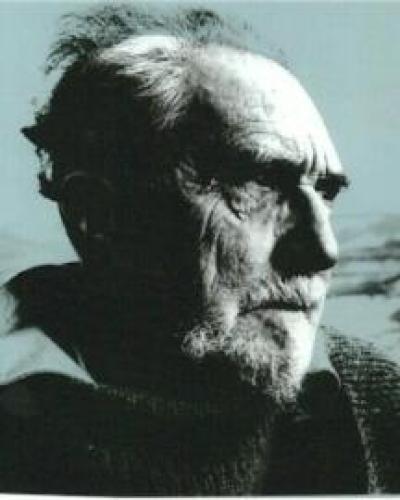Perhaps no other major modern American poet's work is so deeply and irreducibly conflicted. Pound was at once the impresario of high modernism—promoting the work of those contemporaries he admired, among them H. D., Marianne Moore, and James Joyce; editing T. S. Eliot's The Waste Land so drastically he is almost its coauthor; defining the imagist movement and making metrical innovation and metaphoric concision central to modernist poetics—and its most tragic figure, undermined by his own arrogance and eventually allied with the worst political impulses of the century. Born in Idaho and raised in Pennsylvania, he would earn an M.A. in Romance Languages at the University of Pennsylvania, teach briefly, and then depart for Europe. But he remained interested in America for years and put himself in direct conflict with his country during World War II.
Pound's major poetic achievement, and the focus of decades of his life, is The Cantos, a book-length sequence of 116 poems that is unquestionably at once one of the most influential and most controversial documents of twentieth-century literature. The poem's learning and system of unexplained references are immense; like all passionate learning it is also periodically idiosyncratic. Pound himself called The Cantos "a poem containing history," and in that deceptively neutral, if potentially grandiose, formulation inheres the poem's great challenge. For The Cantos is history as Pound saw it; to some degree the poem sequence is also history as he participated in it, albeit in a modest but unforgettable way. Some critics have tried to separate Pound's political views from his art, but only a casual or self-deceptive reader of The Cantos can manage that trick. The poems are replete with Pound's enthusiasm for and defense of the nightmare of European fascism; over fifty million people died in the Second World War, and Pound believed the wrong side won. Moreover, as Pound looked over history, he decided that all the arts were at their best when allied with absolute political power. Despite this anguished history, The Cantos remains the primary model for an ambitious American poem based on collage and historical and literary citation.

